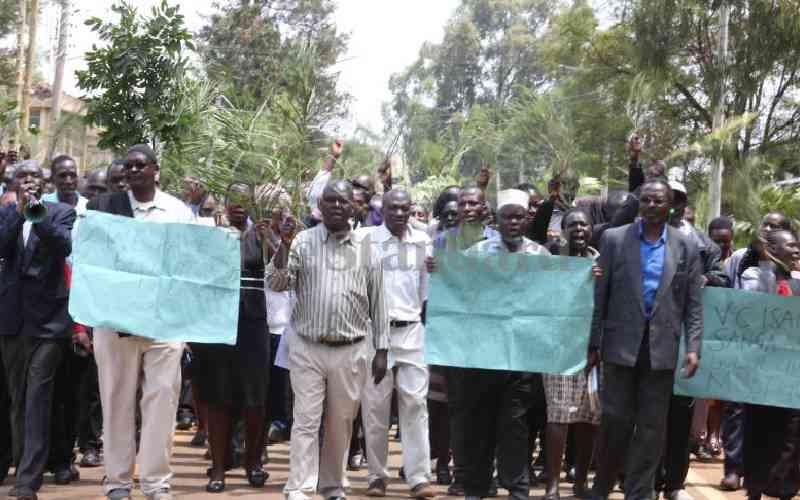×
The Standard e-Paper
Home To Bold Columnists

Workers in public universities are facing a financial crisis as their monthly salaries are now uncertain due to troubled funding from the State.
The Standard has learned that most public universities have issued circulars to both teaching and non-teaching staff, alerting them of impending changes in salary payments. Citing reduced and delayed capitation releases, universities have informed staff that full salary payments are no longer guaranteed.